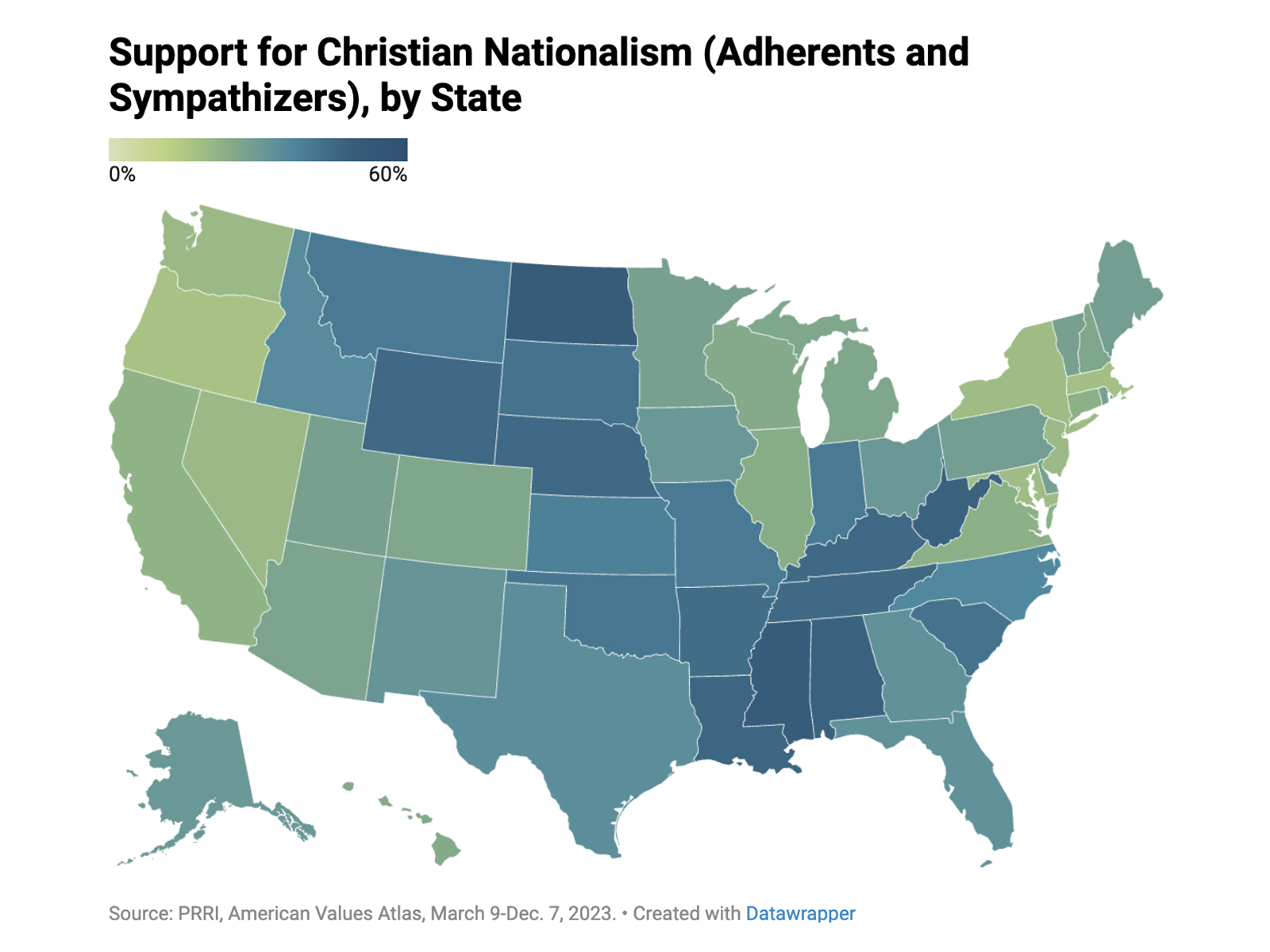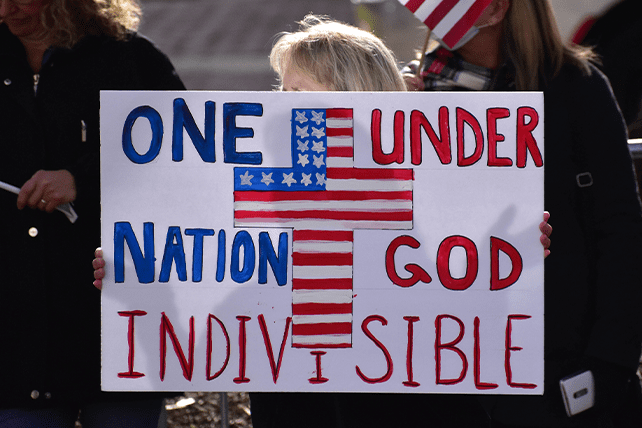(RNS) — A new report released Wednesday (Feb. 28) found that roughly 3 in 10 Americans express some sympathy for Christian nationalism, with its greatest popularity concentrated in the Southeast and Upper Midwest.
The findings appear in a study from the Public Religion Research Institute, which probed public support for Christian nationalism as part of a broader survey of more than 22,000 adults. To assess feelings about Christian nationalism, respondents were asked whether they completely agree, mostly agree, mostly disagree or completely disagree with five statements, including “the U.S. government should declare America a Christian nation” and “U.S. laws should be based on Christian values.”
PRRI broke out four categories depending on how people responded to the questions. Those most supportive of the ideology — 10% of the country — were dubbed Adherents, followed by Sympathizers, who represent 20% of the country. Those who disagreed the statements were classified as Skeptics (37%) or Rejecters (30%).
Mississippi and North Dakota showed the highest levels of support for Christian nationalism, with Adherents and Sympathizers making up 50% of those states. They are followed by Alabama (47%), West Virginia (47%), Louisiana (46%), Tennessee (45%), Kentucky (45%), Nebraska (45%) and Wyoming (45%).
States exhibiting the least support for Christian nationalism were Oregon (17%), Massachusetts (18%), Maryland (19%), New York (19%), New Jersey (20%) and Washington (20%).
Voting patterns reflected the presence of Christian nationalist ideas as well. “Residents of red states are significantly more likely than those in blue states to hold Christian nationalist beliefs,” the report reads. Researchers later note that, overall, nearly 4 in 10 residents of red states express support for Christian nationalism.

“Support for Christian Nationalism (Adherents and Sympathizers), by State” (Graphic courtesy of PRRI)
The survey also noted a strong correlation between support for Christian nationalism and support for the Republican Party, as well as for former President Donald Trump, who has long made appeals to Christian nationalists on the stump.
Last week, in addressing the annual gathering of National Religious Broadcasters, a disproportionately evangelical Christian group, Trump promised the crowd: “If I get in, you’re going to be using that power at a level that you’ve never used before.” He later added: “With your help and God’s grace, the great revival of America begins on Nov. 5.”
In PRRI’s survey, among those who hold favorable views of Trump, 55% qualify as Christian nationalists (21% Adherents and 34% Sympathizers). Only 15% (4% Adherents and 11% Sympathizers) of those who hold favorable views of President Joe Biden were identified as Christian nationalists.
“As the proportion of Christian nationalists in a state increases, the percentage of residents who voted for Trump in 2020 also increases,” the report reads. “If the analysis is restricted to white Americans only, the relationship between state-level support for Christian nationalism and votes for Trump in 2020 becomes even stronger.”
The survey found support for Christian nationalism concentrated in two religious groups: white evangelical Protestants (66%) and Hispanic Protestants (55%). Christians who ascribe to beliefs often associated with Pentecostals and charismatic Christianity, such as modern-day prophecy, spiritual healing and the prosperity gospel, were particularly drawn to the ideology.

